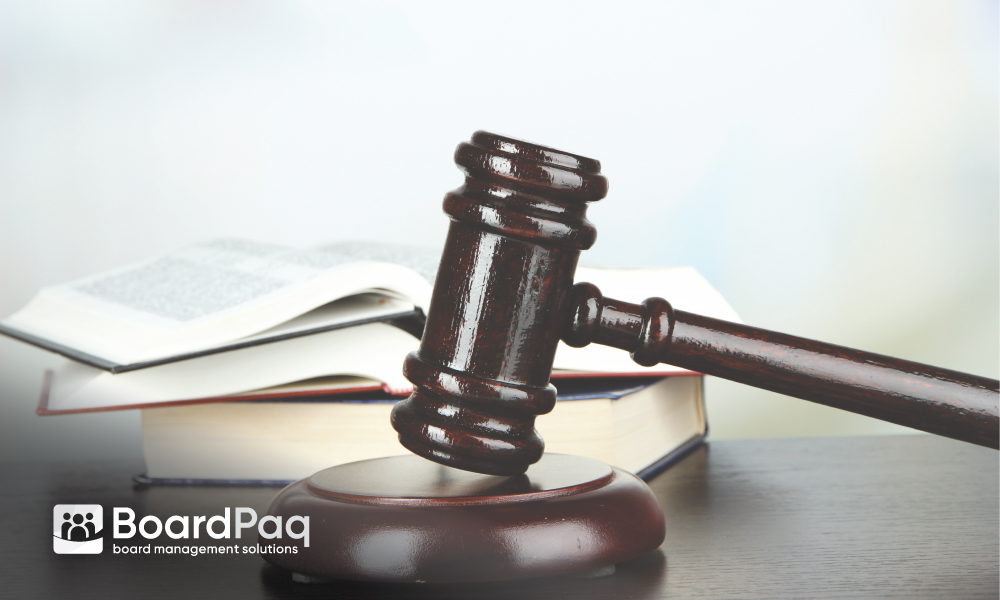Blog

What Do You Do When There is Serious Conflict Between Board Members?
By Dustin McKissen, June 23, 2017
True story: I once worked for a trade association where one
board member physically confronted the employees of another board member’s
business. The board member doing the confronting believed the employees were
trying to steal business. No one was seriously hurt, and the police didn’t get
involved—but it presented serious problems for our trade association.
It’s rare, but what do you do when a disagreement between
board members escalates into confrontation?
Here are a few tips:
1. Consult your
organization’s lawyer—immediately.
A serious conflict between board members can put an
organization on precarious ground. If your organization doesn’t have existing
counsel, find a lawyer who has some knowledge of governance, and find them immediately.
If your board is not aware of the conflict between the directors, be sure to
inform them through the appropriate procedures required by your organization’s
bylaws.
It’s a good idea to have consulted a lawyer prior to the
first board meeting discussing the conflict, and to share your lawyer’s
guidance with your executive committee.
2. Do not pick sides.
Directors and staff are not robots. They are human and are
prone to human emotion. When the conflict mentioned above occurred in our
organization, it was difficult to stay neutral. One board member was clearly in
the wrong—which wasn’t made any easier by the fact that the board member also wasn’t
very well liked.
That said, staying neutral, following any process your
organization may have to mediate conflicts and heeding your lawyer’s advice are
critical. On an emotional level, it may be impossible—or at least difficult—not
to side with a particular board member involved in the conflict.
Don’t do that.
Succumbing to human nature could cause serious harm to your
organization, your board of directors, and your career.
3. Be cognizant of
organizational politics, and try to mediate a compromise.
A disgruntled ex-board member can cause a lot of harm to an
organization. Within the bounds of reason, do your best to avoid letting that
scenario occur. Getting kicked off a board of directors can potentially be
humiliating, and when someone is humiliated their natural response is to lash
out.
Sometimes a compromise can’t occur, but explore solutions
that help everyone involved maintain their dignity and reputation. Failing to
do that could lead to disastrous consequences for your organization.
4. Document
everything.
There’s a chance a conflict between directors can end up in
a legal venue, despite the board’s best efforts to come to a peaceful solution.
Creating accurate minutes and maintaining good documentation related to a board’s
activities are always important—but documentation becomes especially important
in a lawsuit. You will likely need to show what occurred during board meetings
prior to and during the conflict.
Of course, creating and maintaining accurate minutes and
records for your board of directors are important even if two of your board members
aren’t threatening to take their conflict out to the playground at 3 o’clock.
BoardPaq,
the board portal of choice for cost-conscious organizations, helps you do just
that. Our suite of tools ensures your board of directors has accurate
documentation of meetings and decisions. Most boards never experience serious
conflicts between directors—but it can happen. When it does, be sure you
consult your lawyer, follow the process, try to create compromise, and have
accurately documented your board meetings.
| Tweet |
Dustin McKissen is the founder of McKissen + Company, an association management and marketing firm. He is a Certified Association Executive and has served as an executive or consultant to a wide variety trade associations, professional societies, and nonprofits.